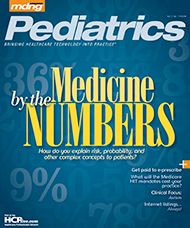The ABCs of Location-based Services
The hottest trend right now in mobile communications is location-based services on smartphones.
The hottest trend right now in mobile communications is location-based services (LBS) on smartphones. Packed with numerous features such as touch-screen interfaces or full QWERTY keyboards, along with speedier Web browsing, smartphones represented 23% of all handset purchases in the fourth quarter of 2008, compared to just 12% for the same period in 2007, according to NPD Market Research (http://tinyurl.com/bee3mz).
More and more of these mobile devices are being sold with built-in global positioning system (GPS) modules, so chances are that the next mobile phone you buy will already have GPS. Network operators like Sprint and Verizon require a small monthly fee for GPS service, or it is bundled into your regular monthly fees, depending on the package you choose.
Although GPS use is most closely identified within-car or pedestrian navigation, a growing number of people are using LBS applications for information and entertainment. Here’s how it works: the GPS receiver knows where you are based on signals from satellites circling the earth. The accuracy of a position determined with GPS depends on the type of receiver. Most handheld GPS units have an accuracy of about 10-20 meters. With knowledge of your physical vicinity, the application can locate other things nearby. In GPS-speak, these are generally known as points of interest (POI) and include everything from hotels, museums, and hospitals to restaurants, banks, and retailers. A GPS system linked to a social network like Twitter will tell you the location of the friends and colleagues who are part of the network.
Suppose you’re driving or walking in an unfamiliar neighborhood and you want to know where the nearest ATM is located. Simply pull out your cell phone and look up the closest bank. I was in midtown Manhattan not too long ago when I had a sudden craving for sushi. I used my Blackberry to pull up the Zagat restaurant guide online. Based on my location, the service was able to show me all the Japanese restaurants within a few blocks of where I was standing. I could even adjust the search parameters to look for restaurants inside a quarter-mile radius. How cool is that? My service provider, Sprint, charges $4 per month for this Zagat mobile service.
Another great service when you’re driving is the ability to find cheap gas. Of course, you can use a free website to do this, but the main advantage of lBS is that mobile users don’t have to manually specify ZIP codes or other location identifiers—the system already knows where you are. Other location-based content services that make sense for drivers provide real-time information about traffic jams, locations of cameras designed to catch speeders, parking reservations, and concierge services.
Mobile commerce is another growing application, taking the form of coupons or advertising directed at customers based on their current location. Say you’re driving or walking past a Starbucks, your phone rings and you see a coupon for $1 off a latte. Consider this an invasion of privacy? I might, too, which is why this particular service hasn’t caught fire with consumers yet. But I can imagine that many people will be happy to get discounts for products and services they already want, so look for this kind of “push” marketing to proliferate in the near future.
How can doctors use LBS in their practice? Just like for most busy professionals with not enough hours in the day, location-based services can be a real time saver, whether you’re avoiding traffic as you drive to the hospital to round, or using the service to find the closest ice cream parlor as you’re walking around town with the family on the weekend. Depending on the kind of practice you run, it might make sense to have your medical office listed as a point of interest in the directories published by GPS device companies like Garmin, Tom-Tom, and others. You never know, your next patient may be driving or walking by your office right now.
Do you use location-based services on your cell phone or PDA? Do you foresee this technology being applied in meaningful ways in healthcare? Do you have concerns over security and privacy issues associated with LBS technology?
Dr. Bertman is Physician Editor-in-Chief of MDNG: Primary Care/ Cardiology Edition. He is a Clinical Assistant Professor of Family Medicine at Brown University and president of AmazingCharts.com, a leading developer of EHR software. He is also the founder and president of AfraidToAsk.com, a consumer website focusing on personal medical topics. He is in private practice in Hope Valley, RI.
